
ENGLISH VERSION BELOW
Rien de tel pour se réveiller un dimanche de Hellfest qu’une giclée de fiel reptilien, encore plus brûlante que le soleil qui accable le festival. Un ébouillantage offert par Hyrgal à ses spectateurs alors que le groupe a ouvert la journée sur la Temple. Dans un espace presse aux allures de fournaise, Clément (chant et guitare), fondateur du projet, détaille la genèse de l’album Serpentine, évoque la mue de son line-up et nous offre plusieurs clefs pour mieux appréhender l’identité d’Hyrgal.
1) Comment s’est passé votre concert sur la Temple ce matin ? Comment te sens-tu ?
Je me sens à la fois bien et vidé. Le weekend a été intense et jouer le dimanche n’est jamais très reposant. Ce fut un moment de partage comme je les aime, avec un public très réceptif. Une grande catharsis à travers de nombreuses choses que j’avais à exprimer. Des hommages personnels auxquels je tenais ont été rendus. C’était un événement particulièrement intense.
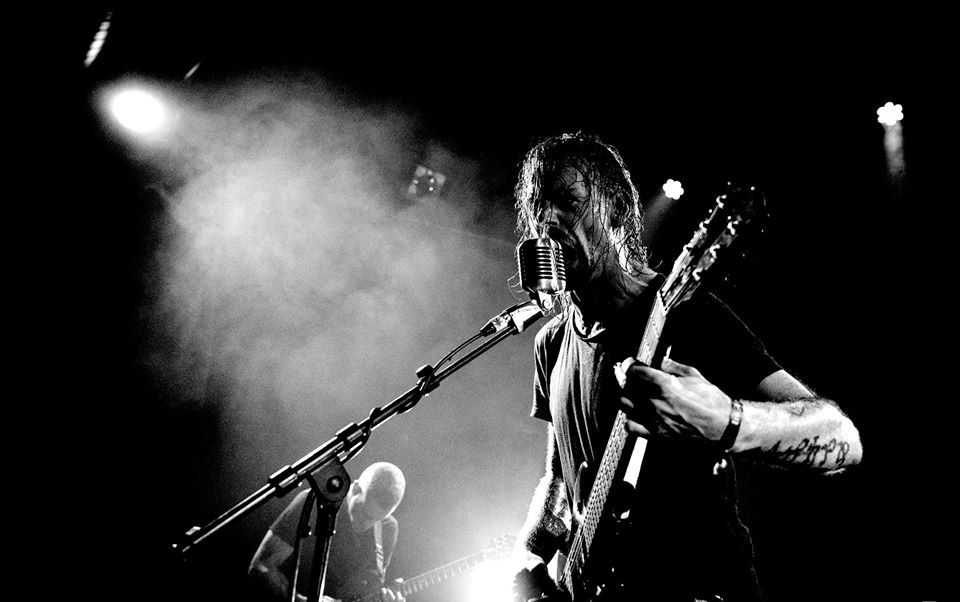
2) Dans quel état (d’esprit) est le reste du groupe ?
Ils ont passé un excellent moment, qui les a évidemment marqués. C’est normal, quand on se produit sur une scène aussi grande et prestigieuse. Ce sont des gens qui viennent de l’ombre et qui sont habituellement en retrait, malgré leurs activités musicales. Je pense que c’était intense pour eux aussi. Le partage a eu lieu entre nous tous également et je crois qu’ils sont très contents de leur prestation. Je pense qu’ils doivent être en train de boire des coups au carré VIP. (rires)
3) Certains groupes jouent fréquemment en live, mais Hyrgal est plutôt discret. Ce Hellfest est d’ailleurs votre première date de 2019. Ce n’est pas trop abrupt de se retrouver propulsés au plus gros festival metal de France ?
Je ne te cache pas que la transition est assez brutale. Nous sommes habitués à de petites scènes et peut-être que ce style de musique s’y prête mieux. Une petite salle favorise la connexion avec le public. Mais cette date importante nous permet de toucher un plus grand nombre de personnes, ce qui compense le fait qu’elle soit la seule de l’année. Peut-être sommes-nous perçus comme plus « amateurs » que d’autres, mais il y a une réelle volonté de notre part de proposer une performance très honnête, très primitive et très simple. Un concert fidèle à ce que l’on est, ce que l’on représente et ce que l’on dit. Je pense que ce pari a été relevé.
Hyrgal est un groupe de mecs simples qui ont juste envie d’exprimer leur colère et leur fureur via un médium extrêmement important à leurs yeux.
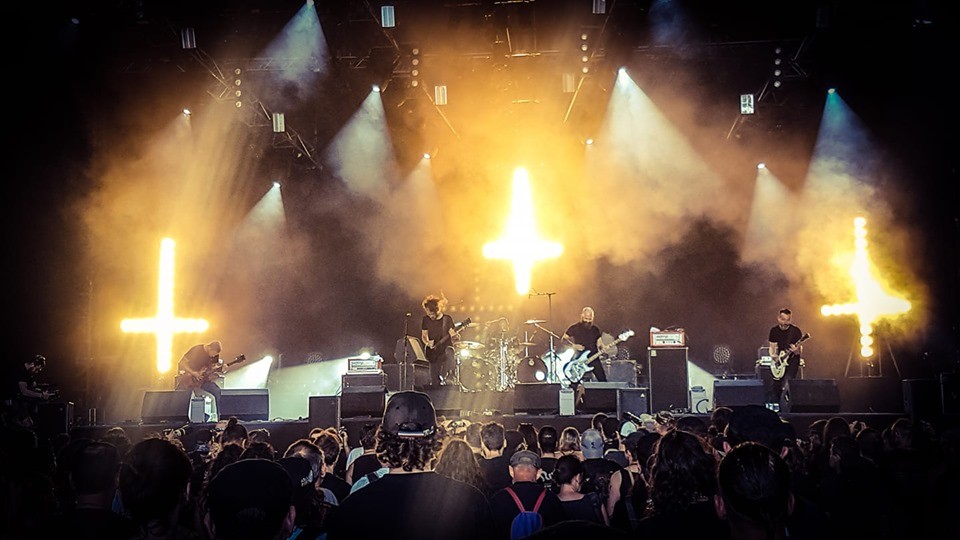
4) Fin décembre, vous aviez annoncé le départ d’Emmanuel et l’arrivée de Nicolas Muller (Svart Crown) derrière les fûts. Quel a été l’impact de ce changement de line-up sur le groupe ?
Cela a été un moment très compliqué pour moi, car des gens que j’aimais beaucoup et qui étaient importants dans la création d’Hyrgal ont quitté le groupe pour des raisons qui leur sont propres. Je reconnais que je ne les comprends pas, mais ce choix leur appartient et je ne porte aucun jugement. Je suis resté très longtemps sans aucun line-up, jusqu’à il y a encore deux ou trois mois, à vrai dire. Nicolas est venu m’aider à partir d’avril-mai et on a fait ce qu’on a pu du temps imparti pour répéter et mettre en place ce set. Ce n’était pas évident, car ces morceaux ont été ressentis de manière particulière lors de leur création et de leur enregistrement. C’était compliqué pour Nicolas d’intégrer ce type de projet : son style de frappe dans Svart Crown est beaucoup plus brutal, direct, rapide et violent alors que les tempos sont bien plus médiums et ambient chez Hyrgal. Ce changement m’a coûté beaucoup émotionnellement, artistiquement, et cela m’a mis dans une certaine précarité musicale et créative. C’était une sale période et je suis content qu’elle soit finie.
5) Le line-up est-il en train de se stabiliser ?
Pas du tout ! (rires) Il est ce qu’il est actuellement avec Nicolas à la batterie et pour le prochain album. Je sais qu’il fournira un excellent travail et j’envisage de lui proposer d’intégrer Hyrgal une fois que ses multiples activités se seront un peu ralenties. Alexis a remplacé Quentin, mon bassiste sur Serpentine, il y a un mois et demi à peine. Il a travaillé sans relâche sur les riffs alors qu’il est batteur et bassiste dans d’autres formations. Ils se sont investis corps et âme dans Hyrgal car ils ont compris la puissance de ce projet, qui leur a parlé. J’espère qu’ils vont rester à mes côtés et qui vont comprendre ma manière de travailler. L’album se fera avec eux et en trio, comme toujours. Je vais m’occuper des guitares et du chant, Nicolas de la batterie et Alexis de la basse. Pour mes deux autres compatriotes aux guitares, ils resteront musiciens de session car ils sont occupé par leurs autres projets personnels ou musicaux.
6) Hyrgal a été fondé en 2007, mais Serpentine est sorti dix ans plus tard. Peux-tu nous parler un peu de sa genèse ?
Cet album a mis du temps à voir le jour, car Hyrgal a été mis en sommeil pendant près de dix ans, du fait de mon intégration dans Svart Crown. C’était alors un groupe émergent et qui demandait de la dévotion. Ages of Decay venait de sortir et nous travaillions sur Witnessing the Fall. On avait une réelle volonté de beaucoup de tourner, de faire de nombreux concerts et de se concentrer sur la scène. J’ai changé de vie et de région pour ce groupe, je m’y suis vraiment consacré. Quand j’ai décidé de quitter le groupe fin 2015, j’ai ressenti une espèce d’urgence. J’avais besoin d’exprimer quelque chose avec un médium que j’avais laissé trop longtemps de côté : le black metal. Serpentine a été composé en moins d’un mois environ, mais les paroles m’ont pris un peu plus de temps. C’était la première fois que j’en écrivais, notamment en français. Ce second aspect a dû prendre un ou deux mois. Il y a eu un côté très agressif dans la gestation de cet album : j’ai simplement pris une guitare pour m’exprimer comme je le voulais et le plus honnêtement possible. C’est ainsi qu’est né Serpentine, un opus brut de décoffrage élaboré en peu de temps. Même l’enregistrement n’a duré que trois ou quatre week-ends. J’ai craché mon venin par ce biais, très rapidement et de manière très brute. C’était une sorte de purge.
7) Pourquoi t’être mis à écrire ? De plus, le choix du français n’est pas forcément évident à une époque où de nombreux de groupes de tous styles et toutes nationalités adoptent l’anglais.
J’ai immédiatement eu envie de chanter en français lors de la genèse de Serpentine. C’était une évidence pour moi. Je voulais fabriquer un produit 100 % français, qui vient de chez nous, fait par des locaux, avec toute la fierté possible. Je ne pouvais pas utiliser la langue anglaise car je ne la maîtrise pas très bien et elle ne me plaît pas particulièrement, même au niveau de la sonorité. Je pense que cette hégémonie de la langue anglaise traduit un désir de s’exporter, de se faire entendre du plus grand nombre et c’est un objectif auquel je n’aspirais pas.Tant pis si les gens ne comprennent pas mes paroles. Certaines personnes à l’étranger ont cependant pris le temps de les traduire, de s’en imprégner et ils ont compris certains éléments. Je trouve cette démarche très forte et intense. Elle me parle beaucoup car elle est similaire à la mienne vis-à-vis des groupes qui me plaisent et qui chantent en anglais. J’essaie de traduire pour saisir leur véritable message.
La partie cathartique est aussi facilitée, quand tu écris dans ta langue maternelle. Je n’avais jamais vraiment écrit de textes « importants » auparavant. C’était la première fois que je prenais une feuille et un crayon afin de cracher mon venin et je me suis lâché. Je n’ai pas forcément de références littéraires pour ce travail d’écriture. Beaucoup de gens m’ont parlé de poésie, de prose baudelairienne, mais mes lectures n’ont eu aucune influence sur ce processus. Ce sont ma colère, ma rage et ma fureur qui ont guidé mon stylo sur le papier, un peu comme de l’écriture automatique. Cela été à la fois très cathartique et dur, car j’ai commencé à exprimer des choses que je n’avais pas forcément envie d’exprimer auparavant dans la musique. Des choses beaucoup plus personnelles. Je suis très content du résultat et je me suis beaucoup retrouvé dans ces textes après les avoir relus. Ce processus fut très intuitif et furieux. Je me revois avec ce papier et ce crayon à cracher ce que j’avais en moi. C’est peut-être l’une des plus belles choses que j’aie pu faire dans la musique et qui m’a apporté le plus d’émotions au moment même de la création. Encore plus que la musique. J’ai enfin pu m’exprimer pleinement.
8) Puisque tu as composé les morceaux avant, est-ce que ces paroles en sont plus ou moins la verbalisation ou est-ce que tu les as écrites de manière indépendante, quitte à les ajuster ensuite à la musique ?
Non, ces deux processus se sont déroulés en même temps. La musique et les pré-productions étaient déjà là, c’est ma manière de travailler. Après, j’ai pris mon crayon et j’ai essayé de ritualiser chaque morceau. De me plonger dans ce que j’avais pu composer. Je n’écris pas des textes pour les retravailler par la suite afin qu’ils s’intègrent à la musique. Tout s’est passé de manière limpide et naturelle : le placement, le type de voix à utiliser et la diction, que je voulais de qualité. Il y avait cette volonté de coucher mes pensées sur papier et elles se sont parfaitement imbriquées avec la musique. Il y a eu très peu de retouches au niveau des paroles.
9) Le titre de l’album est assez intrigant puisqu’il s’agit à la fois d’un adjectif faisant référence à quelque chose de reptilien et du nom d’un minéral. « Serpentine » est un terme utilisé en architecture, aussi.
À l’époque, je cherchais un terme proche de quelque chose d’extrêmement naturel, comme l’album : simple, organique et terreux. Ce minéral me plaît beaucoup. La serpentine est très présente dans les Alpes, alors c’était l’occasion de faire un clin d’oeil à ma région d’origine. Cet endroit, la Savoie, ont eu une influence déterminante dans la création de cet opus. Le fait que cette pierre soit écotoxique pour son environnement me plaisait : élaborer un projet néfaste au sein de cette scène, qui est peut-être un peu aseptisée désormais. C’est certes une roche toxique, mais elle vit et évolue aussi avec son milieu naturel. Je trouvais que c’était cohérent par rapport à ma relation avec la scène. Quant à l’aspect architectural, je sais qu’on trouve ce genre d’ornement sur des encadrements de portes et de fenêtres en Savoie et dans le Var, étonnamment. La roche a été le leitmotiv de départ, ceci dit. Elle correspondait vraiment bien à ma proposition emplie de colère, de fureur et de contestation d’une certaine évolution sociale et sociétale. On vit tous dans le même monde, mais si je pouvais être un peu toxique au sein de ce cadre, c’était le bon moment pour le faire.
10) Puisqu’on parle du titre, peux-tu nous en dire un peu plus sur l’origine du nom du groupe ?
Sa sonorité très rauque et brutale me plaisait beaucoup. Ce nom date de 2006, lorsque j’ai créé le groupe à Bordeaux. À cette époque, je portais un grand intérêt à la culture viking et au polythéisme scandinave. Je cherchais quelque chose de primitif, d’ancien et avec une signification occulte, d’où les runes. Je trouvais que c’était cohérent de les utiliser par rapport à mon ressenti et mon vécu de l’époque. J’ai donc assemblé les runes Týr et Hagal. J’ai ensuite mis le projet en sommeil et, après quelques années, j’étais plus attiré par la culture celtique que scandinave. Quand j’ai remonté le projet, j’ai hésité entre garder ce nom et entamer un projet totalement différent. Cependant, ces runes ont continué à me parler. Je trouvais toujours leur signification très forte, même dix ans après. J’invite les gens à se renseigner sur ce qu’elles représentent et leur sens au niveau humain comme personnel quand on y a recours ou qu’on les porte. Il y a beaucoup d’informations intéressantes à ce sujet et j’ai envie que les auditeurs fassent ce travail de recherche. Je me suis dit que c’était une bonne occasion de relancer ce groupe dont le nom me plaisait, dont le sens et la sonorité me plaisaient même une décennie après. Je suis quelqu’un de très nostalgique et qui vit beaucoup dans le passé, le garder toujours près de moi est l’un de mes traits de caractère.
11) Le logo d’Hyrgal a-t-il toujours eu cet aspect ou l’as-tu modifié quand tu as relancé le projet ?
Non, le logo n’a pas toujours eu cet aspect, je l’ai complètement remanié quand j’ai reformé Hyrgal. Le logo « écrit » possède une signification très riche. Je vous laisse faire toutes les interprétations possibles de cet hexagone et du cercle. Ce dernier donne une idée de continuité, de cycle, alors que le premier fait référence à notre pays. Avec la lettre « h » pour compléter, je trouvais que cela formait un beau sigil. J’aime beaucoup les sigils et les symboles. La typographie est l’une des premières utilisées en imprimerie par Gutenberg et recourir à quelque chose d’aussi ancien, primitif et originel était cohérent. Ce n’est pas particulièrement stylisé, je voulais que ce soit lié à l’honnêteté et la simplicité de l’album.
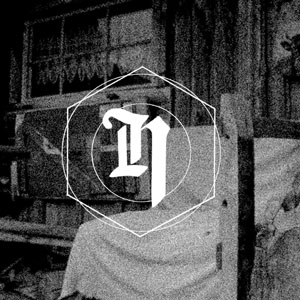
12) En parlant de rapport au passé, je trouve que la cover de Serpentine se démarque vraiment avec cette photographie ancienne en sépia. On a l’impression qu’on aurait pu la dénicher dans une vieille maison de famille. Tu peux nous en dire un peu plus sur celle-ci et l’artwork en général ?
C’est un hommage à mon père, qui est décédé en 2012 alors que je terminais l’album Profane chez Svart Crown, qui lui est dédié. Mais ce n’était pas encore pleinement ma musique et je voulais lui rendre hommage. C’était un excellent photographe et tout l’artwork est constitué de ses photos d’un chalet d’alpage en Savoie, qui appartient à ma famille. Un lieu très agréable en montagne, où j’ai pu me poser. C’est un hommage important à une personne talentueuse et bonne.
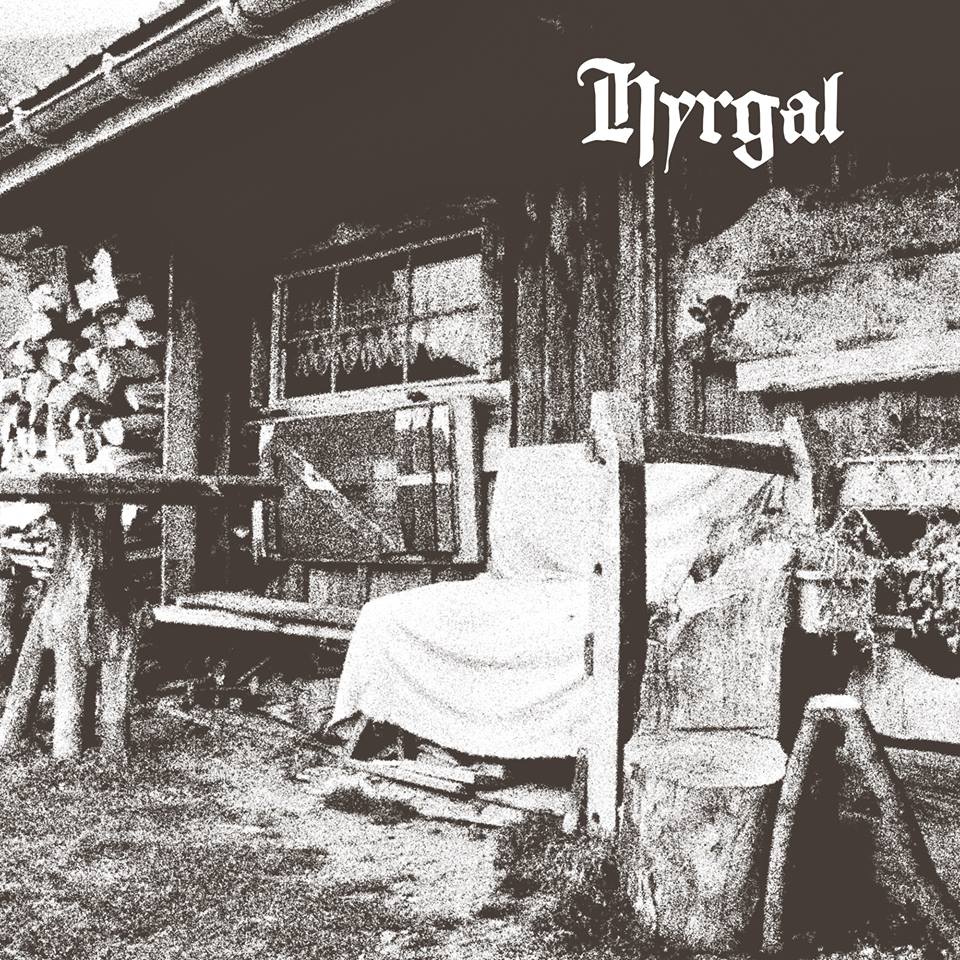
13) Dernier opus en date, mais première collaboration avec LADLO. Comment a-t-elle démarré ?
À la base, Gérald m’avait un peu oublié. (rires) Je cherchais un label pour Serpentine, je lui ai envoyé, mais il n’a malheureusement pas eu le temps de se pencher dessus à ce moment-là. Je le connais depuis longtemps via Svart Crown et je l’apprécie beaucoup. Je sais qu’il dirige un label de passionnés, ce qui me parle énormément. À l’heure de tous ces labels hyper puissants qui passent comme des rouleaux compresseurs sur le marché, je pense qu’il est important de travailler de cette manière. De plus, c’est un label français, ce qui est cohérent par rapport au projet que je voulais mener. Quand Gérald est revenu vers moi, l’album était déjà sorti, mais j’avais vraiment envie de travailler avec LADLO. Alors on a décidé de sortir un vinyle. C’est un label qui correspond bien à Hyrgal, qui a tout mon respect et toute ma gratitude pour le temps et le travail investis dans le groupe, la sortie du LP, la réédition du CD et la promotion. Je ne le remercierai jamais assez de m’avoir permis de sortir un peu de l’ombre et de pouvoir partager ma vision de cette musique-là. Ma vilaine création a pu être mise au goût du jour et promue auprès des auditeurs. Notre collaboration est un succès et j’en suis très content.
14) En parlant du label, veux-tu nous parler un peu votre prestation durant le LADLO Fest en octobre 2018, à Nantes ? Le line-up d’Hyrgal n’était pas le même.
Quel moment de folie ! Ce fut un événement très important pour moi et le reste du groupe à l’époque. Seuls deux membres ont changé, mais il s’agissait de deux personnes vraiment investies. Ce moment a été très fort sur le plan émotionnel. Nous avions pu jouer et exprimer l’intégralité de notre album, contrairement à aujourd’hui. De plus, la qualité du son et l’équipe technique étaient excellentes. Ce genre de date dans un cadre plus petit et intimiste correspond mieux à Hyrgal, je pense. On peut se lâcher encore plus et nous y sommes plus à l’aise que durant nos performances sur de grosses scènes où tu ressens plus de trac. Là-bas, on s’est sentis chez nous et accueillis comme un groupe respecté. Ce genre d’événement est également important pour cette culture musicale avec son format plus réduit et totalement honnête. Je ne remercierai jamais assez l’équipe de nous avoir invités.
15) Comment Serpentine a-t-il été reçu à sa sortie ?
Plutôt bien, je pense. Les chroniques ont été positives. Après, il faut toujours se méfier des chroniqueurs et prendre ces avis avec des pincettes. D’après les échanges que j’ai avec les gens, Serpentine a été bien reçu, mais surtout bien compris et je trouve que c’est le plus important. Lors de certaines interviews, j’ai pu voir des gens qui s’étaient vraiment plongés dans l’album et qui en avait saisi le sens. Les questions étaient pertinentes et bien tournées, je sentais que les personnes avaient lu et compris Serpentine. Mais ça reste compliqué d’évaluer les réactions quand on se trouve de l’autre côté de la barrière. Je garde une certaine distance vis-à-vis de cela et je laisse les gens se faire leur propre avis.
16) Puisqu’on parle de toucher des gens, il paraît que vous avez lancé des albums dans la foule, ce matin.
Oui. C’est aussi comme ça qu’on partage de notre musique. C’est compliqué de mettre du merchandising sur ce type d’événement et on sait très bien comment se passe ce type de business. C’est légitime et je respecte cela, néanmoins. Pour être fidèle à moi-même et à ma vision, cela me semblait logique de donner, tout simplement. Le principe de don est très compliqué de nos jours et n’existe pratiquement plus. Donc c’était important de tout simplement donner, après s’être donnés sur scène, après s’être donné sur l’album. Il est important pour moi de donner lors d’un échange simple et j’espère que des gens ont ainsi un album qui leur parle, le reste n’a pas d’importance.
17 ) As-tu déjà des projets en tête pour l’avenir d’Hyrgal ?
Je suis en train de finir le nouvel album et j’espère l’enregistrer au mois de novembre, si mes autres projets musicaux me le permettent. La composition fut difficile car ce changement de line-up n’a pas été anodin. Il m’a coûté beaucoup en termes de créativité et de dévotion. C’est un peu comme si j’avais été amputé de certains membres, pour la création de ce second album. Je me suis retrouvé seul avec cette idée qu’il fallait faire grandir. Ce futur opus traite du fait de se remettre de certains traumatismes, ce qui était plutôt opportun au vu de ce qui se passait dans ma vie et dans mon travail avec les autres musiciens. Une bonne partie des paroles ont été écrites, également. Je suis très content et fier de cet album, car ce sont peut-être les morceaux d’Hyrgal qui me parlent le plus. Ce sera un album très personnel, à nouveau, fait avec nos moyens et selon nos envies. Il suit la même ligne directrice d’intégrité et d’honnêteté que Serpentine. À titre personnel, j’ai également d’autres projets, que j’annoncerai au moment opportun. Je n’en dévoilerai pas plus afin de ne pas commettre d’impair. En tout cas, la flamme d’Hyrgal brûle plus fort que jamais, bien que le groupe fasse peu parler de lui. Mais il faut savoir que la bête rugit dans sa grotte et qu’elle est toujours bien vivante. Elle sera présente dans l’avenir du paysage musical black metal français, si je peux dire.
18) Un dernier mot ?
Merci aux Acteurs de l’Ombre pour tout le travail réalisé et à tous les gens qui m’ont soutenu. Gardez cette musique qui brûle dans vos tripes et dans vos âmes, ne vous perdez pas. Restez honnêtes et fidèles à ce style qui nous est cher à tous. À bientôt et à très vite sur d’autres scènes, j’espère.
ENGLISH VERSION
Nothing better than being woken during Sunday morning at the Hellfest by a spurt of reptilian venom, hotter than the sun casting its mercyless light upon the festival. A scalding inflicted by Hyrgal to its audience when the band took the first slot of the day on the Temple stage. In a press area similar to a furnace Clément (vocals and guitar), founder of this project, explains the genesis of the Serpentine album, tells us about the sloughing of his line-up and gives us some keys to understand Hyrgal’s identity better.
1) How was your concert on the Temple stage this morning? How do you feel?
I feel both good and totally exhausted. It was an intense week-end and playing on Sunday is never relaxing. I like these moments when you truly share with the audience and this one was very receptive. A powerful catharsis through many things I had to express. Personal respects that matter very much to me were paid. It was an especially intense event.
2) What’s your current state of mind? And the rest of the band’s?
They had a blast and were of course moved by this moment. It’s only natural when you play on such large and famous stage. They are discreet guys, used to stay in the background, despite their musical activities. I think this moment was intense for them too. This sharing did happen between us too and I think they are very happy with their performance. I guess they are now at the VIP bar, having a couple of drinks. (laughing)
3) Some bands can frequently be seen on stage, but Hyrgal is quite discreet as regards the live aspect. The Hellfest is your first gig in 2019 by the way. Isn’t it a bit harsh to be put under the spotlights of the largest metal festival of the country?
I confess the transition is quite brutal. We are used to small stages, which may fit our style better. It’s easier to connect with people in a small concert hall. But this important gig allows us to touch a larger number of people; it compensates the fact that it’s our only concert this year. We may be seen as more “amateur” than some other bands, but we really want to offer a very honest, primitive and straightforward performance. A show reflecting truly what we are, what we stand for and what we say. I think the bet was won.
Hygral is composed of straightforward guys who just want to express their anger and fury through a medium that means very much to them.

4) At the end of December 2018 you announced Emmanuel was leaving and Nicolas Muller’s arrival (Svart Crown) behind the drums. What was the impact of this line-up change on the band?
It was a very complicated period for me because people I love and who played an important part in the creation of Hyrgal left the band for personal reasons. I admit I don’t understand them, but it’s their choice and I don’t judge them. I spent a long time without any line-up, until two or three months ago, to be honest. Nicolas has been helping me since April or May and we did what we could within the time allotted to rehearse and prepare our set. It wasn’t easy because theses songs have been felt in a particular way when they were created and recorded. It was challenging for Nicolas to blend in this kind of project: his style in Svart Crown is much more brutal, direct, fast and violent whereas tempos are much more medium and ambient in Hyrgal’s songs. This change was painful for me, both emotionally and artistically, and it put me in some kind of musical and creative instability. It was a bad time and I’m happy it’s over.
5) So is your line-up stabilising?
Not at all! (laughing) For the time being, I have Nicolas as a live drummer and for the next album. I know he’ll do a tremendous work and I’m considering asking him to join Hyrgal once his numerous activities have slow down a little bit. Alexis just replaced Quentin, my bass player on Serpentine, one month and half ago. He has worked without respite on the riffs, although he’s also drummer and bass player in other bands. Both put their bodies and souls in Hyrgal for they understood the power of this project, which touched them. I hope they’ll stay with me and understand the way I work. The next album will be made with them, as a trio, as it was the case for the first one. I’ll take care of the guitars and the vocals, while Nicolas will play as the drummer and Alexis as the bass player. As regards my fellows guitarists, they’ll stay session members since they are busy with their other personal or musical projects.
6) Hyrgal was founded in 2007, but Serpentine was released ten years later. Can you tell us more about its genesis?
It took some time for this album to be released because Hyrgal has been put on standby for almost ten years following my integration in Svart Crown. It was an emerging band at that time and required a real commitment. Ages of Decay was just out and we were working on Witnessing the Fall. We really wanted to tour, play a lot of gigs and focus on the stage aspect. I changed my whole life for this band, I moved out and really dedicated it my existence. When I decided to leave the band in 2015, I felt some sort of emergency. I had to express something with a medium I had been putting aside for too long: black metal. It took less than a month to compose Serpentine, but lyrics required more time: the writing process took one month or two. There was something very aggressive in the genesis process of this album; I just took my guitar to express myself the way I wanted and the most honestly possible. That’s how Serpentine was born, a very aggressive opus conceived in a very short period. Even the recording was done is three or four weekends only. That’s how I spat my venom, very quickly and in a very rough manner. It was some sort of purge.
7) Why starting to write? Besides, choosing French isn’t the most obvious option at a time when many bands from all music genres and countries prefer English.
F. C.: I’ve wanted to sing in French since the very beginning of Serpentine’s genesis. It seemed obvious to me. I wanted to make a 100% French product, from our home, elaborated with a great pride by its people. I couldn’t use English because I don’t speak it well enough for this and I’m not very fond of its musicality. I think this English’s hegemonia reflects a will to export yourself as a band, to have your music heard by the largest number and it wasn’t my goal. And if some listeners can’t understand my lyrics, so be it. However, some people abroad took the time to translate the lyrics, to immerse themselves into it and grasped several elements. I find this approach very strong and intense. I feel really close to it since it’s similar to mine towards English-singing bands I like. I try to translate their lyrics to get their real message.
Writing in your mother tongue favores the catharsis process. I had never written really « meaningful » texts before. For the first time I took a piece of paper and a pen to spit my venom out and I totally let it go. I didn’t have any specific literary references for this writing work. Many people I’ve talked to referred to poetry, Baudelaire-like prose, but these works had no influence on my writing process. My pen was led by my anger, my hatred and my fury. It was a bit like automatic writing. It was both very cathartic and hard, for I began to express things I didn’t really want to express through music before. Things which are much more intimate. I’m very happy with the result and I felt really close to these lyrics when I read them once again. This process was very intuitive and fierce. I remember myself with this piece of paper and this pen, spitting out what was in me. It may be one of the most beautiful things I’ve ever done with my music and of those that moved me the most during its creation. Even more than the music did. I had at long last the chance to express myself fully.
8) Since you composed the songs first, are these lyrics more or less the verbalisation of them or did you write them independently, even if it meant adjusting them to the music subsequently?
F. C.: No both processes happened at the same time. Music and pre-productions were already ready, that’s the way I work. Then, I took my pen and tried to ritualise each song. To dive into what I compose. I don’t write lyrics to adjust them after so they can fit the music. Everything went in a very clear and natural manner: the voice placement and type to use and the diction, which I wanted of good quality. I had this will to put my thoughts down on a piece of paper and they intertwined perfectly with the music. They were very few changes to the lyrics.
9) The album’s title is quite intriguing since it’s both an adjective referring to something reptilian and the name of a mineral. « Serpentine » is also a word used in architecture.
F. C.: I was looking for a word close to something extremely natural, like the album, back then. Something simple, organic and earthy. I like this mineral very much. Serpentine is very common in the Alps mountains, so it was an opportunity to make a nod to the region I come from. This place, the Savoy land, had a decisive influence upon the creation of this opus. I liked the fact that this mineral is ecotoxic for its environment: developing a harmful project among this scene, which may be seen as a bit aseptic now. This mineral is toxic, yes, but it lives and changes with its environment as well. I found this consistent with my relationship with this genre. As regards the architectural meaning, I know this kind of ornamentation on door and window frames in Savoy and in the Var, surprisingly. Rock was the primary leitmotif, though. It really fitted my offering full of anger, fury and protest against a certain form of social and societal evolution. We’re all living in the same world, but if I had the chance to be a bit toxic among this, it was the right time to do so.
10) Since we’re talking about titles, can you tell us a bit more about the origin of your band’s name?
F. C.: I really liked its very hoarse and brutal sonority. This name was created in 2006, when I founded the band in Bordeaux. At that time I took great interest in viking culture and Scandinavian polytheism. I was looking for something primitive, old and with an occult meaning, hence the runes. I thought using them was consistent with how I felt and what I was living at that time. So I put the Týr and Hagal runes together. Then I put this project on standby and a few years later I became more interested in the Celtic culture than in the Scandinavian culture. When I put this project on tracks again, I hesitated between keeping this name and beginning a totally different project. However I was still feeling close to these runes somehow. Even a decade later, I still found they hold a very strong meaning. I encourage people to get more information about what they represent and what they mean at a human and personal level when you use or wear them. Many interesting information can be found about them and I want the listeners to do their own researches. I thought it was a good occasion to revive this band of which I still liked the name, whose meaning and sound were still appealing to me a decade later. I’m a very nostalgic person who lives much in the past; keeping the past close is one of my personality traits.
11) Has Hyrgal’s logo always looked this or have you modified it when you revived your project?
F. C.: No, the logo hasn’t always looked like this; I revamped it totally when I reassembled Hyrgal. Its “written” logo has a very rich meaning. I let you make every possible interpretation about its hexagon and its circle. The latter conveys a notion of continuity, of cycle, whereas the first refers to our country’s shape. I found the whole result made a beautiful sigil once completed with the letter “h”. I really like sigils and symbols. The typography was one of the first used in printing by Gutenberg and using something so old, primitive and dating back to the origins was consistent. It’s not particularly sophisticated, I wanted it to be connected with this opus’ honesty and simplicity.

12) Speaking about relationships with the past, I find Serpentine’s cover really noticeable with this old sepia photograph. It looks like it could have been found by chance in some old family house. Can you tell us more about it and the album’s artwork in general?
It’s a tribute to my father, who passed away in 2012 when I was finishing Profane, a Svart Crown’s album that was dedicated to him. But it wasn’t fully my own music and I wanted to pay my respects. He was an outstanding photographer and the whole artwork is made of photographs he took of a high pasture chalet in Savoy, which belongs to my family. It’s a very pleasant place in the mountains, where I had the chance to get some rest. It’s an important homage to a gifted and good person.

13) Latest album but first collaboration with LADLO. How did it start?
Originally, Gérald more or less forgot about me. (laughing) I was looking for a label for Serpentine, which I sent him, but unfortunately he didn’t have the chance to look into it at that time. I’ve known him for a long time via Svart Crown and I like him very much. I know he leads a label of passionate people and I feel really close to this. In this era of extremely powerful label that go like steamrollers across the market, I think it’s important to work like this. Besides, it’s a French label, which is consistent with the project I wanted to make. When Gérald came back to me, the album was already out, but I really wanted to work with LADLO. So we decided to release a vinyl. This label matches Hyrgal’s spirit and has all my respect and gratitude for the time and work put into the band, the LP release and re-release of the CD and the promotion. I couldn’t thank them enough for allowing me to get a bit out of the shadows and to share the way I see this kind of music. My naughty creation was brought up to date and promoted towards listeners. Our collaboration is successful and I’m very happy with it.
14) Speaking of the label, could you tell us about your concert during the LADLO Fest in October 2018 in Nantes? Hyrgal’s line-up changed since then.
F.C.: What a crazy event! It mattered really much to me and the musicians who played there. Two members only have changed in the meantime but they were really invested into Hyrgal. It was a very intense moment, emotionnaly speaking. We had the opportunity to play and express our whole album, unlike today’s gig. Besides, the sound and the technical crew were excellent. This kind of smaller and more intimate events fit Hyrgal the most, I think. We can let ourselves go even more freely and we feel more comfortable than during shows on big stages where you’re more nervous. We felt at home back there and welcomed like a respected band. This kind of event is also important for this musical culture through its smaller scale and totally honest spirit. I couldn’t thank the team more for inviting us.
15) How was Serpentine welcomed after its release?
F.C.: Quite well, I think. Reviews were very positive. But you always have to beware of reviewers and take their opinions with a pinch of salt. According to my discussions with some people, Serpentine was well received but also well understood and I think this is the most important part. During some interviews, I noticed the persons who really immersed themselves into the album and grasped its meaning. Their questions were relevant and well delivered, I felt these people had read and understood Serpentine. But it’s always difficult to assess the reactions when you stand on the other side. It take a step backward and let people have their own opinion.
16) Since we’re talking about touching people, I’ve heard you threw albums in the crowd this morning.
Yes, we share our music in this manner too. It’s complicated to sold your merchandising at this kind of event and we’re are well aware of how the business goes here. It’s legitimate and I respect this, though. To be true to myself and to my vision, it seemed logical to give, it’s as simple as that. The notion of giving is very complicated today and doesn’t really exist anymore. So it mattered to simply give, after putting a lot of effort on stage, after giving yourself on this album. Giving during a straightforward exchange matters to me and I hope people now have an album that touches them; the rest doesn’t matter.
17) Do you have already some plans in mind for the future of Hyrgal?
I’m currently finishing the new album and I hope I’ll record it this November, if my other musical projects allow it. Composing it was difficult because line-up changes were no small matters. They cost me much as regards creativity and dedication. It felt a bit like being amputated of some members when it was time to create this second album. I was left alone with this idea which needed to grow. This upcoming opus deals with recovering of some traumas, which was quite timely giving what was going on in my life and my work with the other musicians. The writing process is also already quite well advanced. I’m very happy and proud of this album, because it’s made of Hyrgal’s songs I may relate the most to. It will be a once again a very personal album, elaborated with our means and according to what we want. It follows the same guideline of integrity and honesty than Serpentine. On a personal note, I’m already working on other projects I’ll introduce when the time will be right. I won’t disclose more so I won’t make any blunder. Anyway, Hyrgal’s flame is burning brighter than ever, even if we’re discreet as a band. But you have to know the beast is roaring in its cave and is still alive and kicking. It will be part of the future French black metal musical landscape, if I may put it this way
18) Some final words?
I thank the Acteurs de l’Ombre for all the work done and all the people who have supported me. Keep this music that burns in your guts and your souls, don’t get lost. Stay honest and true to this style that means so much to all of us. Bye and see you very soon on other stages, I hope.
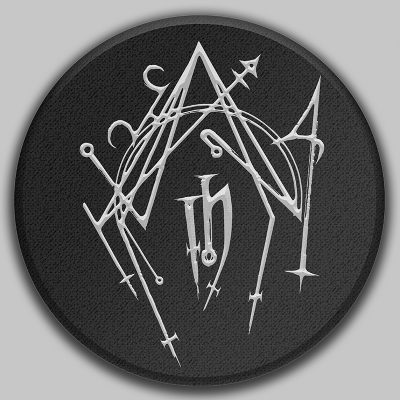

Hyrgal – Hyrgal // Patch
Le prix initial était : 6,00€.3,00€Le prix actuel est : 3,00€.
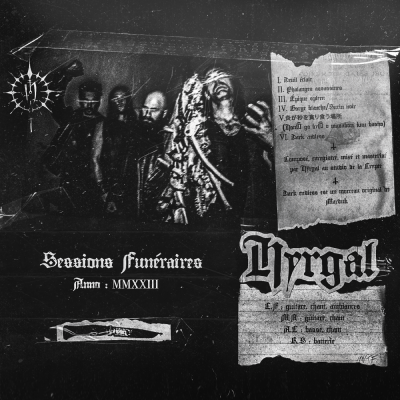


Hyrgal – Session Funéraire anno MMXXIII // Digipack
Le prix initial était : 13,00€.6,50€Le prix actuel est : 6,50€.
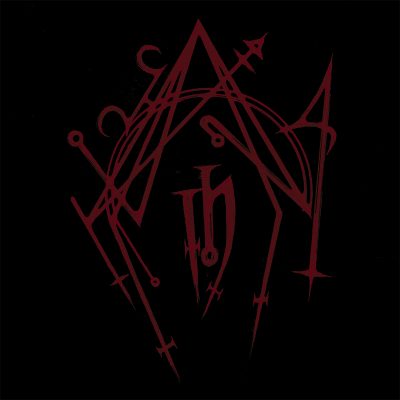




Hyrgal – Hyrgal // LP
11,00€ – 12,00€



Hyrgal – Hyrgal // Digipack
Le prix initial était : 13,00€.6,50€Le prix actuel est : 6,50€.
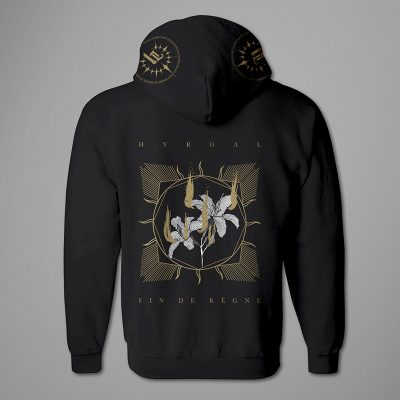






Hyrgal – Fin de Règne // Hoodie
Le prix initial était : 43,00€.30,00€Le prix actuel est : 30,00€.
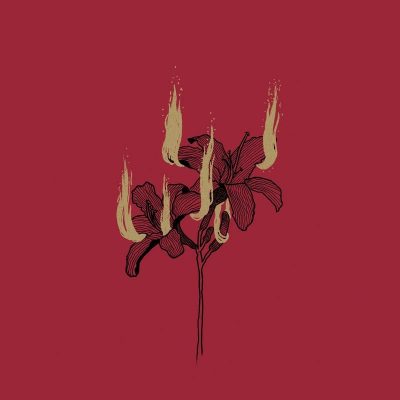





Hyrgal – Fin de Règne // LP
11,00€ – 12,00€
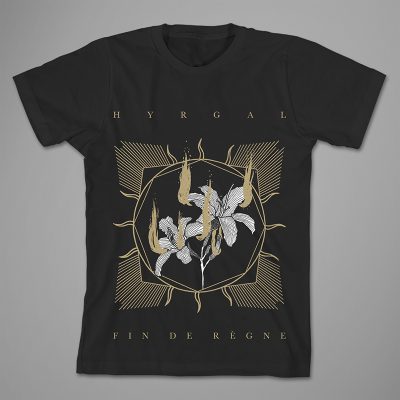

Hyrgal – Fin de Règne // T-shirt
22,00€



Hyrgal – Fin de Règne // Digipack
Le prix initial était : 13,00€.6,50€Le prix actuel est : 6,50€.
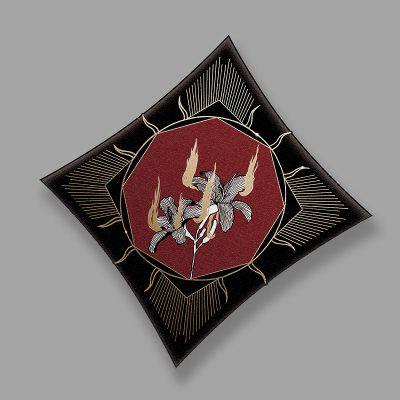

Hyrgal – Fin de Règne // Patch
Le prix initial était : 6,00€.3,00€Le prix actuel est : 3,00€.
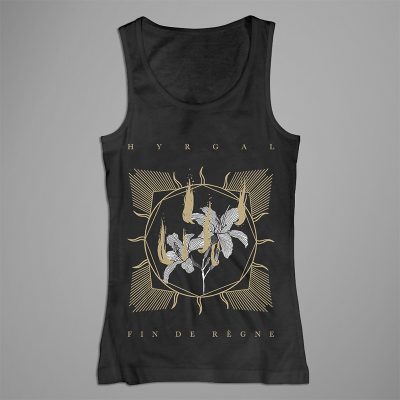

Hyrgal – Fin de Règne // Tank top Girlie
22,00€
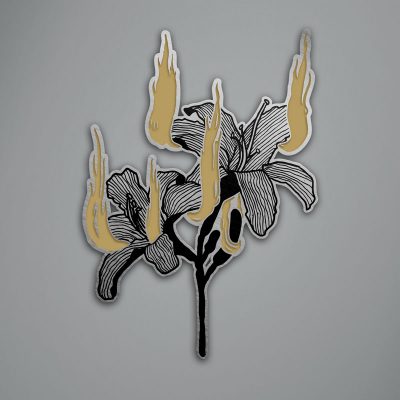

Hyrgal – Fin de Règne // Pin’s
Le prix initial était : 8,00€.4,00€Le prix actuel est : 4,00€.
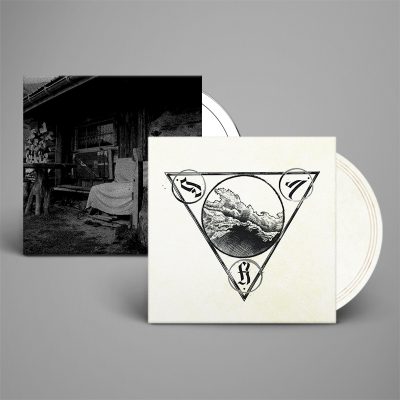


Hyrgal – Serpentine + Split // 2 Digipacks
Le prix initial était : 24,00€.20,00€Le prix actuel est : 20,00€.
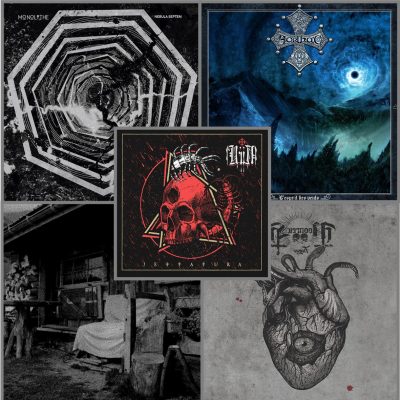


2018 RELEASES PACK: MONOLITHE , AORLHAC, HYRGAL, MOONREICH, VOID
Le prix initial était : 61,00€.49,00€Le prix actuel est : 49,00€.
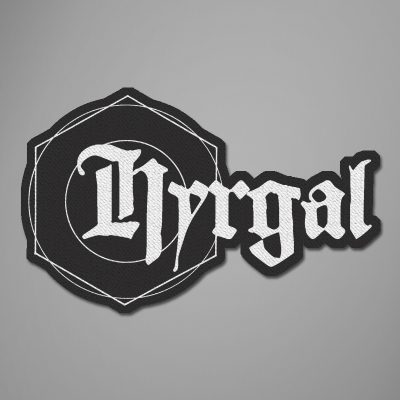

Hyrgal // Patch
Le prix initial était : 6,00€.3,00€Le prix actuel est : 3,00€.
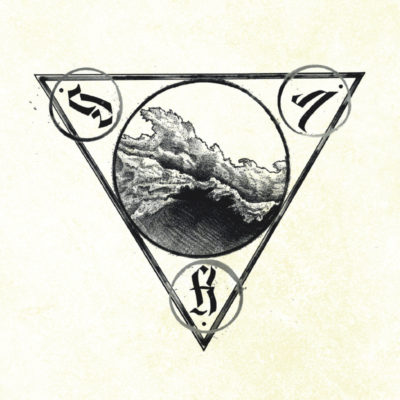


BAA – VERFALLEN – HYRGAL split album Digipack
Le prix initial était : 13,00€.6,50€Le prix actuel est : 6,50€.
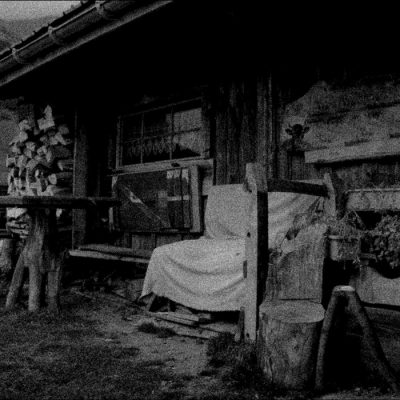


Hyrgal – Serpentine // Digipack (LADLO 2018 reissue)
Le prix initial était : 13,00€.6,50€Le prix actuel est : 6,50€.
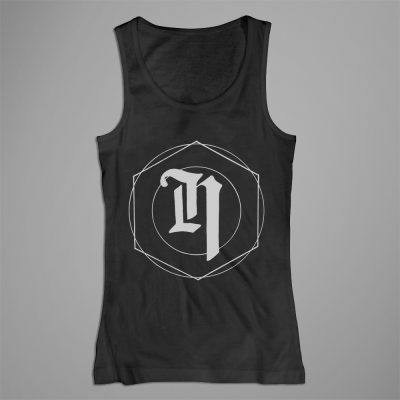
HYRGAL // Serpentine Girlie tank top
22,00€
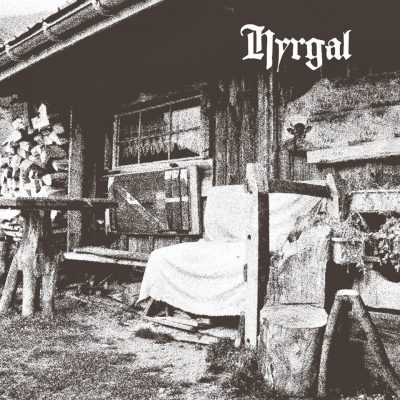




Hyrgal – Serpentine // LP Gatefold
11,00€ – 12,00€

